Are Hong Kong’s pink dolphins about to disappear?
by Martin Yip
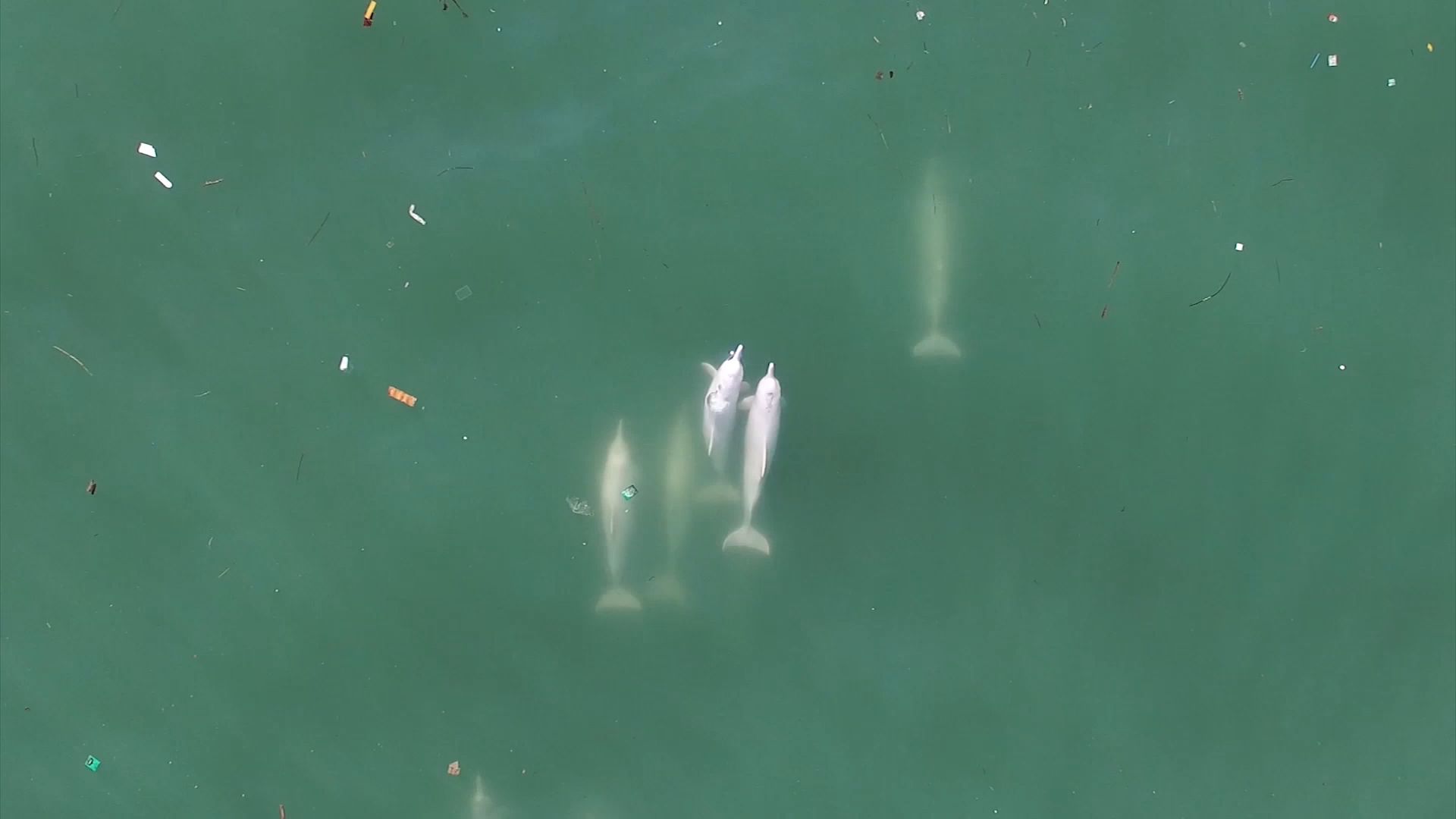
It wasn’t until the 1990s that anyone actually counted the number of pink dolphins living off the coast of Hong Kong. Construction of the city’s new international airport, Chek Lap Kok, was almost complete but in the process important dolphin habitat had been reclaimed for runways and terminal buildings. Hong Kong officials decided to check how the dolphin population was doing. They counted 250 individuals.

Today only 32 remain
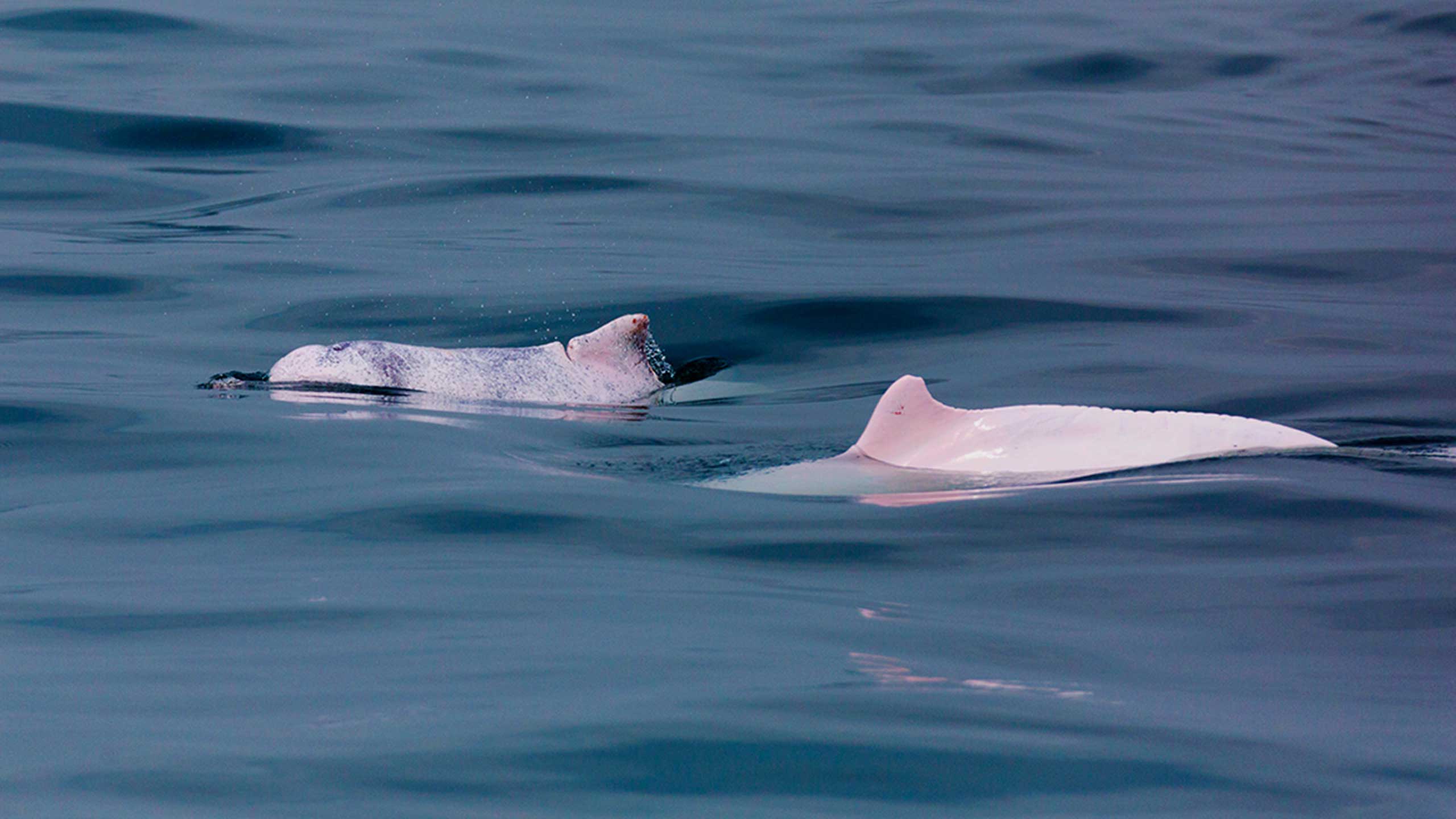

Hong Kong’s pink dolphins are actually Indo-Pacific Humpback Dolphins, or Chinese White Dolphins. And their skin isn’t pink; the animals live in murky waters with little sun penetration so it simply lacks pigmentation. It is warm blood pumping through vessels close to the skin’s surface that gives the dolphins their bubblegum pink appearance.
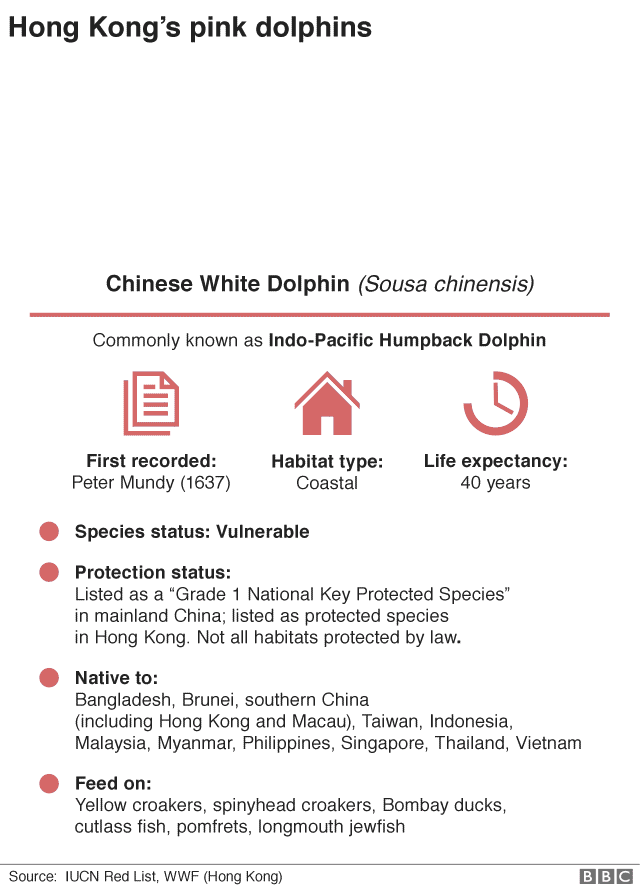
The first recorded mention of these unusual creatures was by a British man called Peter Mundy in 1637. Mundy, a merchant who helped introduce tea to the UK, described the dolphins as "sword fish", not realising they were mammals. He wrote in his journal: “The porpoises here are as white as milk, some of them ruddy withal.”
Hong Kong’s fishermen have known about the creatures for centuries. They call the dolphins Hak Kei (the Black Taboo) or Pak Kei (the White Taboo). "Once they are here, all the fishes will be gone!" says Uncle Wai, a fisherman in Tai O, a major fishing village in the western edge of the territory.
“Fishing boats don't usually follow where they go. We fishermen mostly hate them.”

Catching a glimpse is not easy but dolphin-watching tours have become popular with tourists. When people see the dolphins for the first time, their joy is obvious.
“I’ve had some striking moments,” says Janet Walker, a senior guide with the DolphinWatch tour. "You know, amazing aerial displays and things… or like the dolphins that come and swim under your feet! Or, you know, look you in the eye.”
But Janet is worried. She’s noticed the dolphins are disappearing. "You know we are still seeing a few calves, but not that many, and the number’s still plummeting."
“I think we are very privileged to see them. Because with the amount of development that is going on around Hong Kong, especially reclamation of the sea, they are going to be gone sooner or later, I think”Chris, British tourist on the pink dolphin spotting tour
Outside of the tourism and fishing industries, pink dolphins aren’t a part of daily life for the 7.4 million people that live in the dense and bustling port of Hong Kong.
"To be frank, like many Hong Kongers, I knew little about the dolphins until I picked up this job,” says Taison Chang, chairman of the Hong Kong Dolphin Conservation Society.
"And that's the problem. Many of us were aware of them, but all we knew was the superficial stuff. We need to know about the problems they are facing before we can conserve them.”
In 2017, the population looked like it was low but stabilising. When the latest figure of 32 dolphins was released last summer, a 32% drop on the 2017-2018 period, it was a shock to conservationists like Mr Chang.
“We knew the figure would keep going down but we never thought that it would drop to just 32”Taison Chang
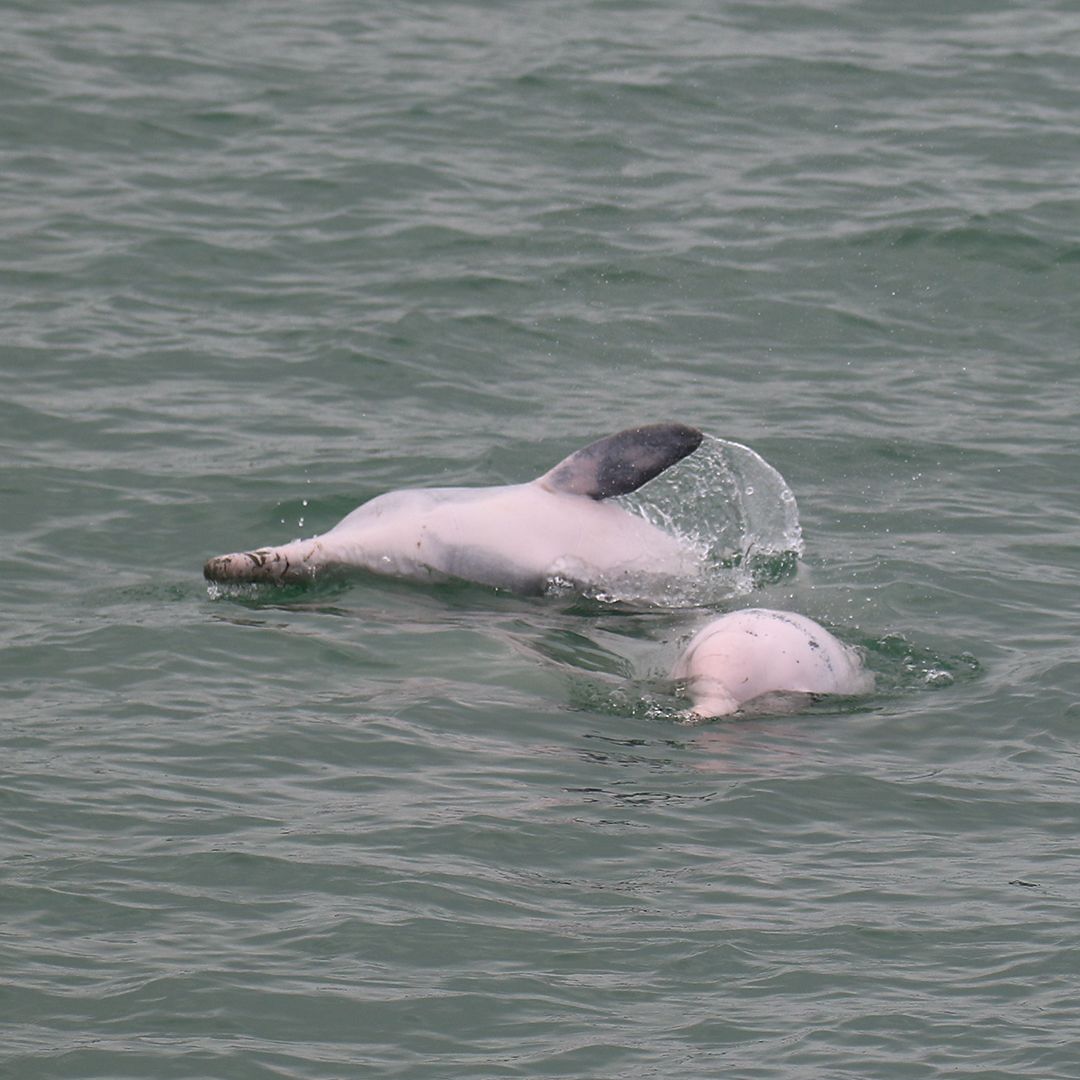
Chinese White Dolphins can be found off the west coast of Taiwan, as well as Vietnam, Thailand, and as far as Java in Indonesia in the South, and Tamil Nadu in India in the West, according to the International Union for Conservation of Nature (IUCN). While this explains why the species as a whole is not yet classified as endangered, what is clear is that their habitat along the Chinese coast has been rapidly shrinking as huge infrastructure projects reclaim marine habitat and the surrounding water becomes busy and polluted. Populations like the one in Hong Kong could disappear within a generation.
THIS IS AN EXCERPT, READ THE REST OF THIS EXCELLENT MULTIMEDIA PRESENTATION HERE AT THE BBC
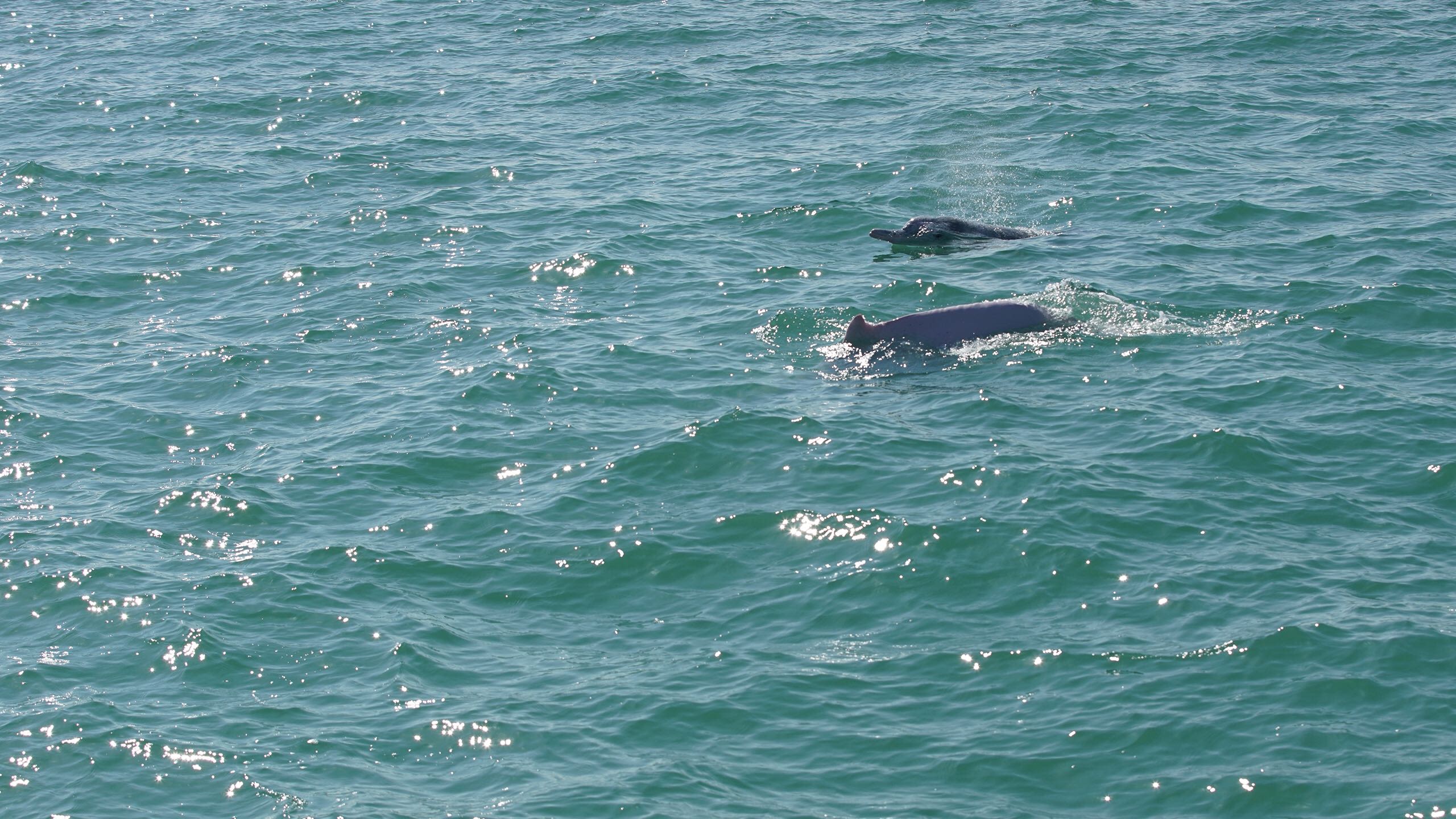
No comments:
Post a Comment